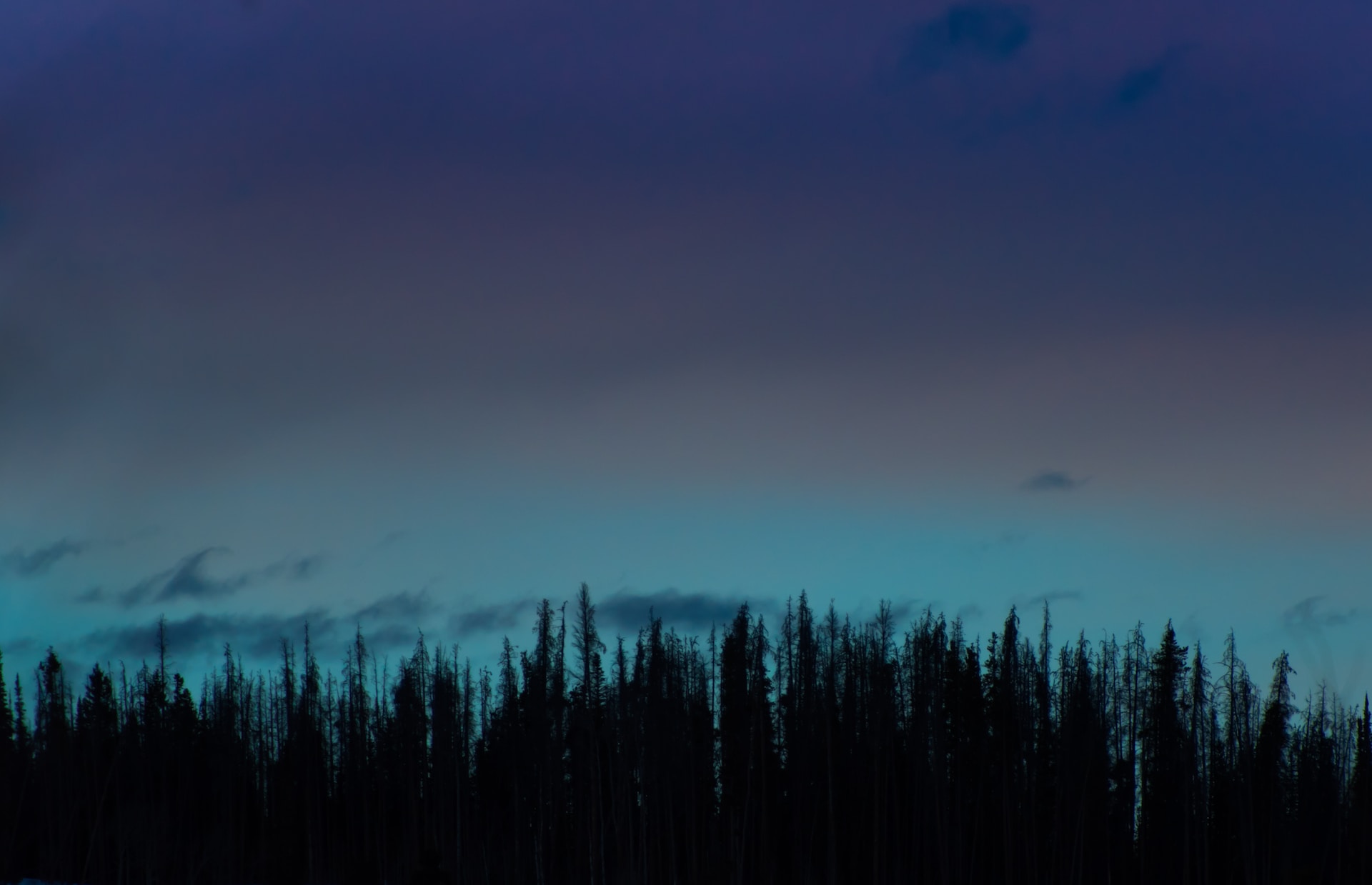ScamLand
Bury Our Names
We leave home behind. No trumpets play on the city walls, no flags unfurl in our wake. At the edge of the wilderness we pack our names in salt and lower them into caches. Will they rot without our constant tending? Stones at our back, we cross through the forest and arrive at a field of wheat, the breeze coming through. Our hands moving through. Fingers passing against stems, as if the stems are the land’s own velvetine hands, buried long before we had words like “velvetine.” Buried, generally. Buried, like we will be.
Soap
We come to the edge of a starlit lake and wash ourselves. We don’t have any soap, no olfactory reminders of pressed flowers and sweet citrus, but it doesn’t matter. We don’t know where we’re going, but we don’t want to be dirty when we get there. The night gives in, changing to soft pinks, then yellows, then brilliant blues. We lie down on the pebbled shore, watching the sky rearrange itself, and as our stomachs grumble for food, we try to come up with new words for cost.
Caretakers
Home is a salesman giving you a fist bump. Gasoline poured over bones with a smile. A wink. We have come from the keen trap of peak empire and do not immediately recognize, when we descend the ravine, the ruins of another. Stone columns reaching for the sky, weathered into a rough twin of their original selves. Little creatures shuffle between the columns, buckets and rags in hand, climbing up rickety ladders to clean these coarse surfaces. They don’t see us, so dedicated they are to their task. Caretakers. We spend the night in the ruins and try to scrape our shadows off the wall, falling asleep to the trill of crickets and hoots of owls. The mountain slam and the bubbling of the creek. When the morning comes and we rise from our earthen beds, the creatures emerge from hidden burrows and set about their task once more. We carry on.
Rules of the Beast
We cross a threshold, a sticky line of sedge and mud, and find ourselves in a swamp. There is a beast that makes its home in the swamp, we see its hulking shape in the fog, but maybe the beast and the fog are one and the same—the cattails and mossy trunks shake with every step, but sometimes the land goes quiet. We do not know the rules of the beast, so we try to write them ourselves. Move quickly and softly, disturb the water only when absolutely necessary. No resting. No speaking. No burning lamps. It’s unsettling, we come to see, how adaptive we can be. On the edge of the waste, parting the reeds to step through to the other side, we move greedily, no longer clasped in the hand of fear, our lungs beginning to ache for open air. It frightens us, that ache.
Bloom
We wander for many days and nights. As we gradually run out of food, we forage in the grasses and keep our eyes open for fish and game to hunt. The animals that have learned to speak our tongue offer their advice, but we are skeptical, careful in accepting aid from a fox and trading secrets with chickadees. Time passes. One day, we find a clearing at the edge of a ridge, looking out over miles and miles of forest. We set up camp, the moon rises, and we beat our drums beneath her. We dance heedlessly. Heads rise, necks turn. The beat gains intensity, and bodies coalesce onto the floor. Belonging is a beast, a pool, a tunnel, a tender sinew in the muscle of all things. Heavy bass thumps, the fire crackles, and shoulder blades expand with thickening air, like a swift nocturnal bloom. We may stay here for a night; we may stay here forever.
Author’s Note: “I’ve always been inspired by Ursula K. LeGuin’s The Ones Who Walk Away from Omelas, and these vignettes are in some ways a spiritual sequel to it, the collective journal of a group of people leaving behind an idyllic and comfortable existence in search of something that feels more humane, more sustainable, and perhaps even a bit wilder. While I am not myself wandering a fictional wilderness filled with strange creatures, I’ve wrestled with many of the same questions about leaving behind bad systems in order to find a better way to live.”
 Jeremiah Moriarty is a writer from Minnesota. His work has previously appeared in The Rumpus, Prelude, Glass: A Journal of Poetry, Hobart, Breakwater Review, and elsewhere. He tweets @miahmoriarty.
Jeremiah Moriarty is a writer from Minnesota. His work has previously appeared in The Rumpus, Prelude, Glass: A Journal of Poetry, Hobart, Breakwater Review, and elsewhere. He tweets @miahmoriarty.


